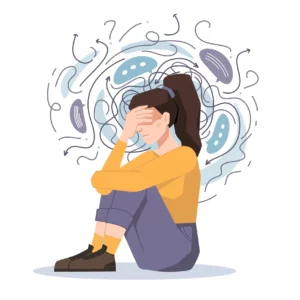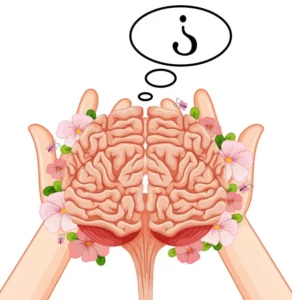Are you someone who needs things to be just so, or else you can’t help but feel anxious and uncomfortable? Do you find yourself performing certain rituals repeatedly, even if they don’t make sense to anyone else? If so, then you might be dealing with obsessive-compulsive disorder (OCD). It’s a condition that affects millions of people all over the world. In this blog post, we’ll explore some of the most common OCD problems people face and what can be done about them. Whether you’re struggling with intrusive thoughts or compulsive behaviours, this guide will help shed light on your experiences and offer practical solutions for managing your symptoms. So let’s dive in!
Contents
What Is OCD and What Are Its Symptoms?

Obsessive Compulsive Disorder (OCD) is a mental disorder that affects an estimated 2-3% of the population. It’s also one of the most common psychiatric disorders and can have a significant impact on a person’s life. There are many different types of OCD problems that people face, but all of them share certain common symptoms. These include:
- Persistent and intrusive thoughts or images (obsessions) that cause anxiety or distress
- Compulsive behaviours (rituals) that are performed in an attempt to relieve the anxiety or distress caused by the obsessions
- Significant impairment in daily functioning due to the time consumed by the obsessions and/or compulsions
People with OCD often recognize that their thoughts and behaviours are irrational, but they cannot seem to help themselves. This can lead to a great deal of frustration and distress.
Common OCD Problems People Face?

There are many different types of OCD problems that people face, but some of the most common ones include the following:
- Fear of contamination or becoming contaminated with dirt, germs, or other substances. This can lead to excessive hand-washing, cleaning, and avoiding contact with others.
- Intrusive thoughts or images that are disturbing or distressing. These may include fears of harming oneself or others, sexual or violent thoughts, or unwanted thoughts about religious topics.
- Excessive need for order, symmetry, and perfectionism. This can manifest in behaviours such as needing to arrange things in a certain way, needing everything to be symmetrical, or obsessively checking for mistakes.
- Fear of making mistakes or not following a certain set of rules. This can lead to behaviours such as excessive checking, writing things down multiple times, or taking longer than necessary for activities.
- Excessive hoarding and difficulty throwing things away. This can lead to cluttered living spaces and feelings of guilt or anxiety in relation to discarding items.
- Unwanted or intrusive sexual thoughts or behaviours. This may include unwanted urges to act out sexual fantasies, fear of being attracted to someone of the same sex, or fear of engaging in inappropriate sexual behaviour.
- Repeating words or phrases over and over again, checking locks multiple times a day, excessive cleaning, ordering things in specific ways, avoiding certain situations, being excessively precise in one’s movements or words, etc.
- As OCD becomes more severe the thoughts and behaviours that are causing distress become more intrusive and repetitive — it can be difficult to live a normal life. This can lead to job loss, relationship problems, and a great deal of self-judgement.OCD can cause significant distress and interference in daily life.
If you are struggling with OCD symptoms, please seek professional help from a mental health provider specializing in OCD treatment.
Steps To Overcome OCD Problems
There are many different types of OCD problems people face, but there are some common ones that seem to be more prevalent. If you or someone you know is struggling with OCD, here are some steps that may help to overcome the problem:
1. Understand what OCD is and how it works. This can be a helpful first step in learning how to deal with the condition.
2. Develop a healthy coping mechanism. This could involve talking to friends or family members about your struggles, journaling, or exercising.
3. Seek professional help if needed. A therapist could help you develop healthy coping mechanisms and work through your specific OCD problems.
4. Be patient with yourself. Recovery from OCD can take time and relapses may occur. However, don’t get discouraged and remember that it is possible to overcome OCD.
5. Practice mindfulness techniques. Mindfulness can help to reduce stress and anxiety, which can be helpful in managing OCD symptoms.
6. Try Cognitive Behavioral Therapy (CBT). This form of therapy focuses on changing the way you think and behave, which can be beneficial in managing OCD symptoms.
7. Practice relaxation techniques. Relaxation can help to reduce stress and anxiety, which can be beneficial in managing OCD symptoms.
8. Seek help from family and friends. It can be helpful to have a supportive network of people to help you along in your journey.
9. Join a support group. Joining a support group can be an invaluable resource for those dealing with OCD.
10. Anxiety Management Techniques can be helpful in managing anxiety and stress. This can be done by practising relaxation techniques, managing your thoughts and emotions, and setting boundaries.
These are just some of the steps that can be taken to overcome OCD problems. It is important to remember that everyone’s experience with OCD is different and that it may take time for symptoms to improve. However, with the right resources and support, it is possible to manage and even recover from OCD.
When To See A Doctor For OCD?
There are a number of different types of OCD problems that people can face, and it is not always easy to tell when it is time to see a doctor. Some people may feel like they need to see a doctor when their OCD begins to interfere with their daily life or when they start to experience anxiety or depression. Others may not feel the need to see a doctor until their OCD has become severe.
If you are struggling with OCD, it is important to talk to your doctor about your symptoms. They will be able to help you determine whether or not you need medication or therapy. If your OCD is severe, you may need to be hospitalized for treatment.
How Long Does It Take To Recover?

Most people with OCD will need some form of treatment to recover. The length of time it takes to recover from OCD can vary depending on the severity of the disorder and the individual’s response to treatment. Some people may see a significant improvement in their symptoms after just a few weeks of treatment, while others may require several months or more to see a significant reduction in their symptoms.
Conclusion
OCD can be a challenging disorder to deal with, and it is important to seek professional help if you suspect that you may have OCD. However, understanding more about the common issues faced by people with obsessive-compulsive disorder can provide valuable insight into how best to manage your own symptoms. We hope this article has given you some useful information on what kinds of obsessions and compulsions are most common in individuals with OCD and ways in which these problems might be addressed.
For more information and guidance, please contact OCDMantra. OCD is a mental health disorder characterized by obsessions and compulsions. If you have any queries regarding OCD treatment, OCD Counseling, ERP therapy experienced therapists at OCDMantra can help: Book a trial OCD therapy session


